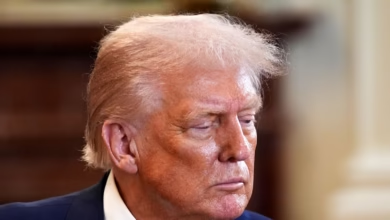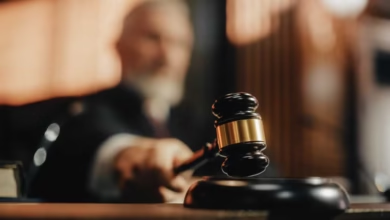Hollywood’s AI Dilemma: An Industry in Crisis

▼ Summary
– Silicon Valley and Hollywood hold opposing views on AI’s role in content creation, with OpenAI’s Sam Altman promoting Sora as a tool for creators.
– Hollywood executives at the Screentime event appeared unprepared for AI’s rapid advancement and the risks it poses to their industry.
– Many media leaders avoided directly addressing OpenAI’s unauthorized use of copyrighted material to train Sora, focusing instead on AI’s less controversial applications.
– Warner Music CEO Robert Kyncl was a notable exception, asserting that content must be licensed for AI training and warning of consequences for violations.
– The music industry’s consolidated approach contrasts with Hollywood’s lack of collective action, potentially allowing AI companies to continue operating without permission.
A deep chasm separates the tech hubs of Silicon Valley and the entertainment capital of Hollywood regarding the integration and governance of artificial intelligence. The industry finds itself at a critical juncture, grappling with a technological wave that promises creative liberation while simultaneously threatening established business models and intellectual property rights. Recent events highlight just how unprepared many traditional media leaders are for the rapid advancements being pushed by AI developers.
At a recent OpenAI developer conference, CEO Sam Altman introduced the new Sora application, framing it as a powerful gift for content creators. He suggested the company might even be overly restrictive in its current limitations. Altman expressed a widely held belief within the tech community that such tools foster deeper audience connections, describing the phenomenon as a new form of fanfiction. His presentation painted a future where AI empowers creativity without significant downsides.
The following day, at a media conference in Los Angeles, the mood was starkly different. Studio executives, agents, and other industry leaders voiced a palpable sense of anxiety. With Sora rapidly gaining users, the application dominated conversations. The prevailing sentiment was one of confusion and helplessness; many leaders appeared to have no concrete strategy to address the existential risks posed by AI, leaving them vulnerable to being overtaken by a technology evolving at a pace they cannot match.
A recurring theme at the event was a strong, almost ritualistic, affirmation of commitment to copyright protection. However, this verbal commitment was not matched by direct confrontation of the core issue: that OpenAI almost certainly trained its models on copyrighted material without seeking permission. The industry’s failure to present a unified public stance or a clear action plan concerning this unauthorized use of intellectual property is a significant cause for concern for everyone working within the entertainment sector.
When pressed for answers, executives often deflected. Netflix’s co-CEO avoided a direct question about Sora, choosing instead to discuss more mundane, behind-the-scenes applications of AI in production. Similarly, the CEO of Paramount Skydance downplayed the disruption, comparing AI to a simple tool like a “new pencil” for creation. The most forthright commentary came from the music industry, with Warner Music’s CEO stating unequivocally that any company wishing to train AI on their content must obtain a proper license, warning of consequences for those who ignore this principle.
This stronger, more decisive position from the music world is not accidental. Record labels, having previously navigated the disruptive rise of digital streaming, are better organized to confront AI companies as a consolidated bloc. Their experience has taught them the importance of establishing clear rules from the outset. The Warner Music CEO even expressed a long-term optimism, drawing a parallel to how YouTube eventually transformed from a copyright headache into a vital distribution partner.
While this confident approach might work for the music industry, the rest of Hollywood’s fragmented and hesitant response creates a vacuum. This lack of collective resolve effectively allows AI firms to continue their strategy of acting first and dealing with repercussions later. OpenAI’s decision to train Sora on a vast corpus of online content was a calculated move, demonstrating a clear disregard for the intellectual property it utilized. Altman is merely executing a well-established tech industry playbook for achieving market dominance, a tactic that has proven successful in the past.
(Source: The Verge)





